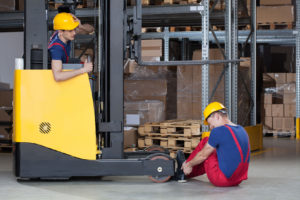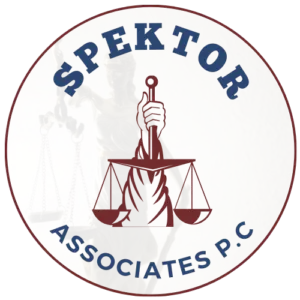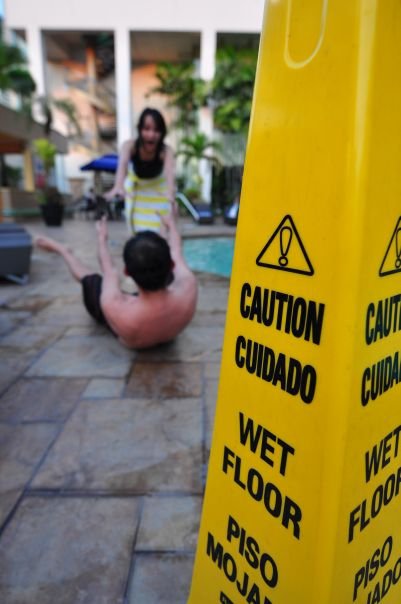Getting hurt or injured due to the negligence of a property owner on a commercial or residential property is a situation that requires the services of an experienced lawyer. These incidents are classified as premises liability cases. This is because the responsibility for the maintenance of a safe environment for people is the owner’s duty.
A premises liability case is a legal action taken against property owners in a court of law due to the injuries sustained by the person on the property due to the unsafe environment.
Where Can Injuries Take Place?
As a property owner, constant checks on properties to ensure they are non-hazardous to people is advised as a lot of equipment is faulty and can earn you several visits to the court due to premises liability.
Premises liability cases can exist in any structure or environment. Examples of premises liability include; slip and fall incidents due to unsafe stairs or chairs, personal injury in falling from faulty equipment in a construction site, dangerous pools, fire hazards, other general negligence, and animal attacks by the pet of the property owner.

Types of Premises Liability Case
The types of premises liability can be categorized into two; the cause of the injury and the place where the injury occurred.
Place of the Injury
- Personal injury on a residential or private property
- Damage to a commercial or public property
- Wear on a government property
- Personal injury on a defective pool
- Personal injury in an apartment
- Injury at a daycare or education center
- Serious injuries at a place of work
- Injury at a recreation center
Cause of Injury
- Injuries due to hidden equipment defects
- Injuries caused by defective flooring and stairways
- Injury caused by faulty elevators and escalators
- Injury caused by a falling object.
- Injuries caused by food poisoning
- Injuries caused by the negligence in the security provided.
- Injuries from slips and falls on the property
- Injuries from snow and ice on the property
How is Liability Determined?
Liability cases differ from state to state and from country to country. Some states focus more on the injured person’s statements to craft out their judgment, while others may focus on the condition of the property and the actions of both the visitor and the owner before concluding.
RELATED: What is an Attractive Nuisance in Premises Liability Cases Involving Children?
A premises liability case is determined based on the following;
Determining the Visitor’s Legal Status
In states or countries that focus on the injured person, four different tags are given to them, they are present below.
Trespasser
Someone who enters a property without the consent of the owner. The tag trespasser is mainly used on adults, not on kids. Kids are noted under “attractive nuisance” category.
For example, a playground or play equipment like a pool will attract children, be it old or new, it is the property owner’s job to erect barriers and lock them to avoid children.
Invitee
This is someone who enters a property for the financial benefit of the property owner. An example is someone invited into the property by the owner, such as a customer entering a shop. The court has assumed the owner has put in place a safe shopping environment before inviting in people.
Licensee
Someone who enters a property for his personal affairs well known and accepted by the property owner. The owner must make the licensee aware of any faulty equipment or situation to avoid being injured.
Social Guest
A welcomed visitor by the property owners, who is also a licensee, but turns to a trespasser when the welcome card has been revoked.
The Condition of the Property
The general condition of the property will be accessed to see if it is unfit for human presence.
The Property Owner and the Visitor’s Actions
One of the most common accusations by property owners is that injuries are partly the injured person’s fault.
Although a visitor should exercise safe habits, some plaintiffs do not perform this exercise efficiently, and the injury may be due to this aspect.
The court will check whether the injury was on purpose or by accident by the plaintiff and conclude on comparative fault.
Comparative fault
This aspect is the reduction of legal damages to be paid by property owners in premises liability cases based on the percentage of fault caused by the plaintiff. For example, if €5000 is to be paid, but the plaintiff is 50% at fault, the plaintiff will receive €2500.
When the Personal Injury was Due to the Owner and Visitor Actions
The court will have to determine how to mete out the judgment if it is discovered that the cause of injury in the premises liability lawsuit was by both parties.
Do You Need a Lawyer if You’ve Been Injured?
The first question to be answered by you is, did the injury occur on the property? If yes, it is a premises liability case.
Was the injury due to the property owner’s negligence? If yes, you head to the court of law.
How to Find a Competent Lawyer
Before approaching a lawyer, ensure you consult databases such as Avvon and Martindale Hubbell to do background checks; you can also ask other attorneys. Further, ask around for reviews and past cases.
Proving Their Fault and Your Injury
It is necessary to show pieces of evidence about a particular event. Establishing your injury to the civil court is needed to assess and determine the fault during a lawsuit.
Usually, you will have to prove:
– The defendant in court occupies or legally owns the place of injury: You have to prove the defendant owns the property. According to the law, they must ensure the environment is safe for human interaction.
– The defendant’s negligence caused the plaintiff or the injured person this injury: Negligence is the legal concept of accountability. He or she must account for the unintentional harm caused. You must prove that the defendant defied the rule of standard care of the property.
– The plaintiff was harmed: Provide substantial evidence that you were injured.
– The property owner or the defendant’s negligence was an important factor that caused your plaintiff: The plaintiff’s actions should not be the only cause of your injury but rather the leading cause. The injured suffered by you should be addressed in such a way it emphasizes the defendant’s actions or inaction.
Compensation
The product of a lawsuit is the compensation, but what does the settlement of a premises liability case look like?
There is no defined compensation for a premises liability case, the settlement you are likely to receive include;
- Payment of medical bills
- Payment of lost wages due to possible hospitalization
- Compensation for physical pain and suffering
- Punitive damages: Money paid to punish the property owner not to reimburse you for behaviors like negligence on purpose.
Most states do not place a barrier on the highest amount of money to be received, but there is a barrier on the portion of punitive damages you receive, which is $250,000.
How Long Will a Premises Liability Case Take?
There is no specific time range a case should take, but it is dependent on two factors:
- Your lawyer’s competency: The more competent your lawyer can gather facts and pieces of evidence, the faster it will be.
- The severity of your injuries
A competent lawyer will be essential in premises liability claims and personal injury cases. It is necessary to have a strong attorney-client relationship to have full transparency about the situations and conditions present on someone else’s property.
Your attorneys in Queens, New York, will ensure to assess the conditions at apartment complexes, office buildings, or other areas and understand the duty of care, before seeking a firm premises liability lawsuit.
Learn how the attorneys at the Gregory Spektor & Associates Law firm can be beneficial in assessing the conditions of your case and moving forward to obtain the right results.


